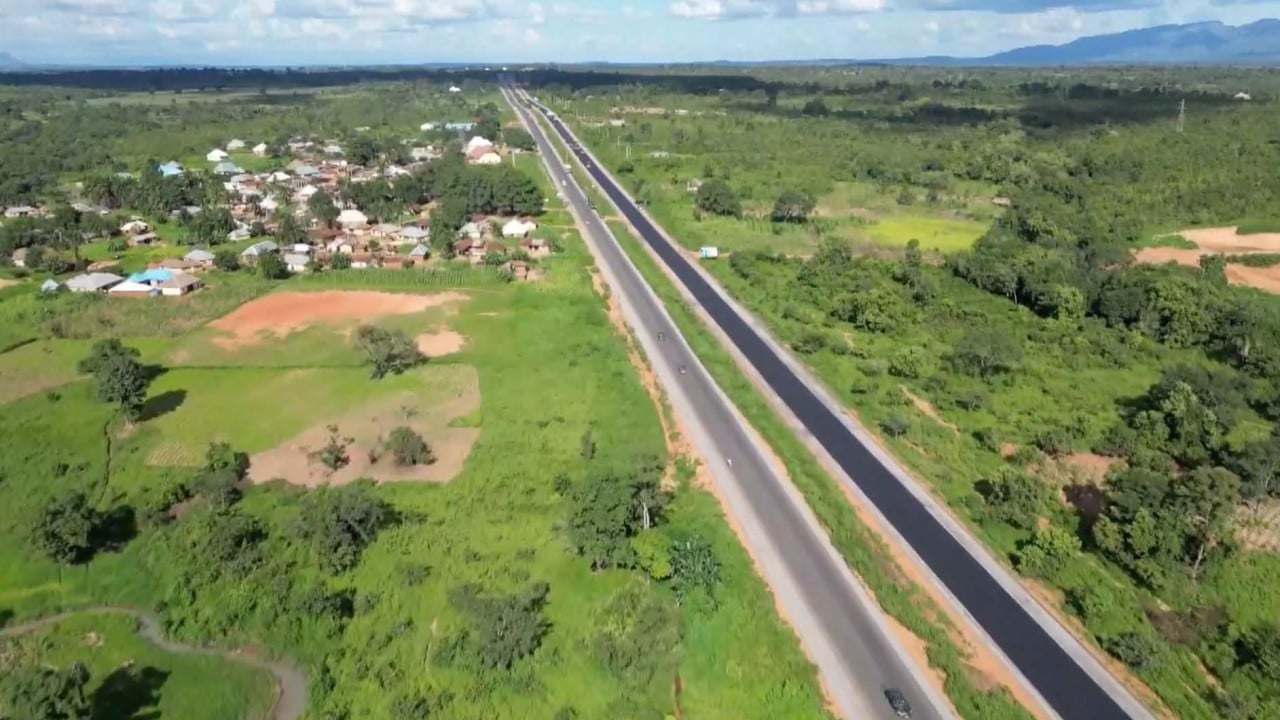The commission said the move aimed to symbolise “the spirit of China-Africa friendship and cooperation” and facilitate “a high-quality China-Africa community with a shared future”.
As China opens up to African farms, long road still ahead for ‘green lanes’
As China opens up to African farms, long road still ahead for ‘green lanes’
Over the past two years, 21 other African countries have benefited from the removal of tariffs on 98 per cent of their products.
Xi introduced the tariff cuts in 2021 during the Forum on China-Africa Cooperation (FOCAC) in the Senegalese capital Dakar, promising to open “green lanes” for African agricultural exports to China, expand the range of products covered by zero-tariff treatment and speed up border processing. The Chinese leader said his country aimed to import products worth US$300 billion from Africa by 2024.
Data from China’s General Administration of Customs revealed that trade between China and Africa reached US$234.8 billion in the first 10 months of 2023, flat compared to the same period last year. Imports to China accounted for US$91.49 billion of the 2023 figure.
The commission said it planned to expand its zero-tariff treatment to all of the “least-developed countries” that have diplomatic relations with Beijing. The tariff relief will enable the countries to export to China without facing customs duties on over 8,000 different products or items.
This will help China increase African food imports after more than two decades of mostly buying raw materials from the continent while exporting electronics, machinery and textiles.
The new measures will allow the DRC to sell goods such as coffee, palm oil, rubber, cotton and cocoa to China while bypassing tariffs, and Angola’s tariff-free items include coffee, sisal, fruit, seafood and spices.
China has come under fire for the trade surplus, with some accusing it of promoting an unhealthy balance by exporting finished products to the continent while importing mostly raw materials.
“I would like to encourage China to open their market more for processed coffee and other products, not only raw materials,” Museveni said.
“One of the problems in Africa has been the export of raw materials, because when you export raw materials, the income is not only much lower, but you also lose jobs. It is important for China and Africa to trade in finished products more.”
How Brics expansion could help boost China’s influence in Africa
How Brics expansion could help boost China’s influence in Africa
“To address trade imbalances with African countries, the Chinese seem to believe that agricultural development and increasing imports from Africa could narrow the trade deficit,” said Mandira Bagwandeen, senior researcher at the University of Cape Town’s Nelson Mandela School of Public Governance.
However, as Carlos Lopes, a professor at the University of Cape Town’s Nelson Mandela School of Public Governance, pointed out in an interview with the Post last year, while the tariff-free treatment applies to 98 per cent of the countries’ tradeable items, it might not cover the items that account for most of the trade value.
“What the 2 per cent will exclude is important as the percentage is calculated in terms of the schedules, not value,” he said, noting that for many of the least-developed countries in Africa, much of that value comes from mineral exports.
Brics summit: African countries wait in the wings for membership expansion
Brics summit: African countries wait in the wings for membership expansion
Lauren Johnston, an associate professor at the University of Sydney’s China Studies Centre, said there had been a shift in China’s relationship with Africa away from a focus on oil and extractive commodities. She called the shift the “Hunan model”, after the southern Chinese province leading the push.
Johnston said Hunan was chosen as the new frontier for China-Africa relations partly because many of China’s competitive industries were based there, including major agritech, manufacturing equipment and construction companies.
“Many of these companies have a presence in, and long-running strategy for, African markets,” she said.
Johnston highlighted the Hunan model’s focus on agriculture, heavy industry equipment and transport such as electric cars and trains – areas where the province is a leader within China and which are growth industries for many African countries.



